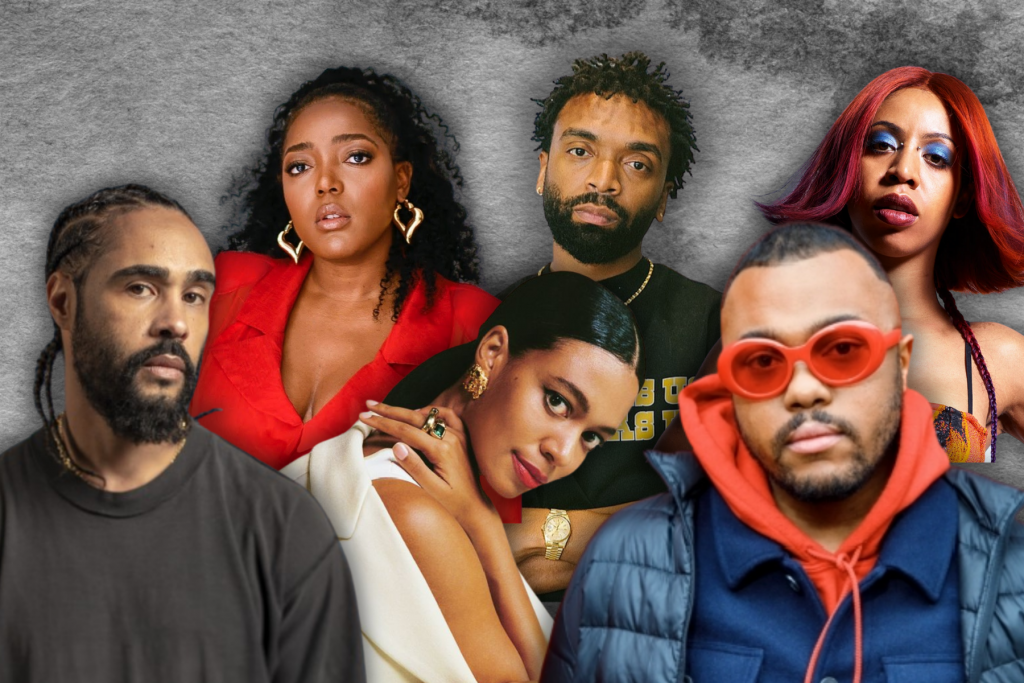
By Justin Tukes
Throughout the COVID-19 pandemic, there has been a stark uptick in the amount of support and spotlight that’s been rightfully extended to Black entrepreneurship and overall Black creativity. Now more than ever, it seems as if we’ve struck gold with what appears to be droves of Black design talent that have fallen out of thin air. But what if I told you things aren’t what they seem? What if I told you that the Black designers we rightfully fawn over today, have been very active participants in an industry that has tipped the scales against them for years?
Personally, I have to admit that up until a few years ago, I, a Black man, didn’t realize the depth of Black designers throughout the industry. Although this is partly due to my own self-inflicted ignorance, I find it essential to call upon the fashion industry’s implicit bias in favor of those who have whiter complexions and are more palatable to white consumers. This favoring of one group over the other causes consumers like me to become conditioned into believing the lie that good fashion and style can only come from the white design houses that produce the namesake labels we’ve come to be so obsessed with. If this tumultuous period has taught us anything, it’s that the success of Black designers isn’t a pipe dream when you pay them more than the lip service of diversity and inclusivity. From creative business ventures like Aurora James’ 15 Percent Pledge to Kerby Jean-Raymond’s Your Friends in New York, we have seen the groundbreaking effects that true patronage, both socially and financially speaking, can have on the visibility and comprehensive reach of Black entrepreneurs. So, in an effort to educate myself and readers alike, here are six Black designers that I admire, and soon you will too. The time has come for us to divest from that H&M paper-thin button-up and Zara sale two-piece suit. It’s time to buy quality. It’s time to buy vision. It’s time to buy true creativity. Oh yes, it’s time to buy Black.
Launched in 2013, Jerry Lorenzo has continuously reinvigorated the men’s wardrobe with pieces that greatly surpass the bounds of trend-driven fashion. Each garment is made to complement the other, with fabrications of the utmost quality and craftsmanship at the forefront of every design. His most current collection, entitled Seventh Collection, is an effective intersection between comfort and effortless chic. Pieces that look just as perfect running a quick errand as they do for a night out.
Aurora James has continuously proven that if you want something done, leave it to a Black woman. Being Brother Vellies founder and Creative Director, James’ main focus is showcasing the craftsmanship and design of African footwear to a global audience while simultaneously creating jobs for African artisans. Her most recent business endeavor includes the creation of the 15 Percent Pledge, a campaign targeted toward calling on major retailers to commit 15% of their shelf space to Black-owned businesses. The campaign has garnered the pledge and support of retailers such as GAP, CB2, Athleta, Kith, Madewell and Moda Operandi.
Being someone who always has strayed away from bright color and bold print, there is something that allures and mesmerizes me when looking at the stand-out creations of one Christopher John Rogers. His affinity with the striking and flamboyant is undeniably ultra-chic, and I was even surprised to see how practical and wearable his pieces are on the street. Truly, Rogers has proven to be a master of marrying a prominent burst of color with what seems to be a more historied approach to the silhouette. And I, for one, can’t help but smile when I see anything with the CJR label.
Clean tailoring, stark blocks of color, and true-to-you attitude have defined Pyer Moss since its founding in 2013. But for Kerby Jean-Raymond, it’s not just a luxury streetwear label but a platform for a conversation surrounding the Black American experience. Whether it’s using documentary-style film, oration or dedicating an entire show and collection to the godmother of Rock’n’Roll, Jean-Raymond knows how to reinvigorate uncomfortable conversations and encourage us all to sit at the table to have them.
Speaking of clothing that makes us smile, I can’t help but think of the rich, flowy and figure-sculpting creations of the Anifa Mvuemba. Founder of Hanifa back in 2012, Mvuemba is proving herself to be an industry mainstay with her ultra-feminine designs that place empowerment and visibility at the forefront. Back in May of 2020, Mvuemba released her now-unforgettable Pink Label Congo collection by way of a virtual presentation. The 3-D figures and garments cascaded down the runway in such a cleanly realistic way, Mvuemba made us briefly forget we were watching advanced technology at work.
Gender fluidity. Sexually charged references. Intense vibrating color. For some, these concepts are extremely taboo, but for designer Mowalola Ogunlesi, they are a welcome invitation to excite and shock. Ogunlesi’s creative process is steeped in the unique and exuberant inspiration she receives from Nigerian and British youth culture. Since holding her first show during London Fashion Week back in 2019, Ogunlesi has amassed a cult following that includes the likes of Drake, Kim Jones, Naomi Campbell and Frank Ocean. And honestly, with her unapologetic take-it-or-leave-it attitude, it’s not hard to understand why.
Each of these designers have their own strong and individually unique vision that has left an everlasting impression on the fashion industry. These six designers do not by any means make up the entirety of Black designers. I encourage everyone to do their own research, just as I will continue to, and look deeper into the rich and never-ending pool of black creatorship. Do not let this be an end, but a beginning to your reeducation of what fashion is and has the potential to be.
























